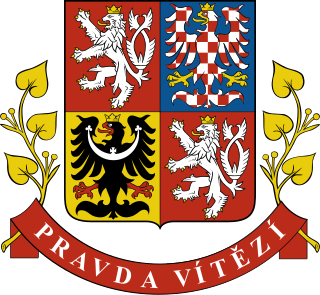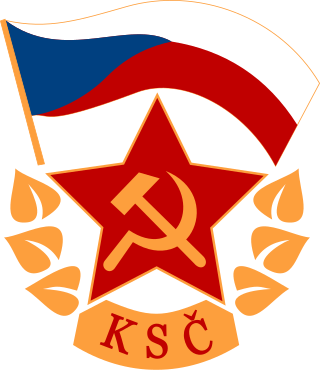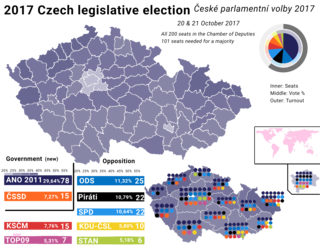| ||||||||||||||||||||||
All 200 seats in the Czech National Council | ||||||||||||||||||||||
|---|---|---|---|---|---|---|---|---|---|---|---|---|---|---|---|---|---|---|---|---|---|---|
| ||||||||||||||||||||||
| ||||||||||||||||||||||
National Council elections were held in the Czech part of Czechoslovakia on 23 and 24 May 1986.
| ||||||||||||||||||||||
All 200 seats in the Czech National Council | ||||||||||||||||||||||
|---|---|---|---|---|---|---|---|---|---|---|---|---|---|---|---|---|---|---|---|---|---|---|
| ||||||||||||||||||||||
| ||||||||||||||||||||||
National Council elections were held in the Czech part of Czechoslovakia on 23 and 24 May 1986.
 | ||||||
|---|---|---|---|---|---|---|
| Party or alliance | Votes | % | Seats | |||
| National Front | Communist Party of Czechoslovakia | 137 | ||||
| Czechoslovak Socialist Party | 14 | |||||
| Czechoslovak People's Party | 14 | |||||
| Independents | 35 | |||||
| Total | 200 | |||||
| Total votes | 7,350,347 | – | ||||
| Registered voters/turnout | 7,404,516 | 99.27 | ||||
| Source: Databáze poslanců [1] CZSO | ||||||

The Czech Republic, also known as Czechia, and historically known as Bohemia, is a landlocked country in Central Europe. The country is bordered by Austria to the south, Germany to the west, Poland to the northeast, and Slovakia to the southeast. The Czech Republic has a hilly landscape that covers an area of 78,871 square kilometers (30,452 sq mi) with a mostly temperate continental and oceanic climate. The capital and largest city is Prague; other major cities and urban areas include Brno, Ostrava, Plzeň and Liberec.

Václav Klaus is a Czech economist and politician who served as the second president of the Czech Republic from 2003 to 2013. From July 1992 until the dissolution of Czechoslovakia in January 1993, he served as the second and last prime minister of the Czech Republic while it was a federal subject of the Czech and Slovak Federative Republic, and then as the first prime minister of the newly independent Czech Republic from 1993 to 1998.

The president of the Czech Republic, constitutionally defined as the President of the Republic, is the head of state of the Czech Republic and the commander-in-chief of the Armed Forces of the Czech Republic.

The Communist Party of Czechoslovakia was a communist and Marxist–Leninist political party in Czechoslovakia that existed between 1921 and 1992. It was a member of the Comintern. Between 1929 and 1953, it was led by Klement Gottwald. The KSČ was the sole governing party in the Czechoslovak Socialist Republic though it was a leading party along with the Slovak branch and four other legally permitted non-communist parties. After its election victory in 1946, it seized power in the 1948 Czechoslovak coup d'état and established a one-party state allied with the Soviet Union. Nationalization of virtually all private enterprises followed, and a command economy was implemented.

The Civic Democratic Party is a conservative and economically liberal political party in the Czech Republic. The party sits between centre-right and right-wing on the political spectrum, and holds 34 seats in the Chamber of Deputies, and is the second strongest party by number of seats following the 2021 election. It is the only political party in the Czech Republic that has maintained an uninterrupted representation in the Chamber of Deputies.

Miloš Zeman is a Czech politician who served as the third president of the Czech Republic from 2013 to 2023. He also previously served as the prime minister of the Czech Republic from 1998 to 2002. As leader of the Czech Social Democratic Party from 1993 to 2001, he is credited with the revival of the party into one of the country's major political forces. Zeman briefly served as the President of the Chamber of Deputies from 1996 to 1998.

Vojtěch Filip is a Czech politician and former leader of the Communist Party of Bohemia and Moravia (KSČM).

The Czech Pirate Party often known simply as the Pirates is a liberal progressive political party in the Czech Republic, founded in 2009. The party was founded as a student-driven grassroots movement campaigning for political transparency, civil rights and direct democracy.
The Mayors and Independents is a liberal political party in the Czech Republic, focused on localism, regionalism and subsidiarity. It holds 33 seats in the Chamber of Deputies, and is the third strongest party by number of seats following the 2021 election. In the Czech Senate, the STAN group has 19 members.
The 1985–86 FIS Cross-Country World Cup was the 5th official World Cup season in cross-country skiing for men and women. The World Cup began in Labrador City, Canada, on 7 December 1985 and finished in Oslo, Norway, on 15 March 1986. Gunde Svan of Sweden won the overall men's cup, and Marjo Matikainen of Finland won the women's.

Early parliamentary elections were held in the Czech Republic on 25 and 26 October 2013, seven months before the constitutional expiry of the elected parliament's four-year legislative term.

Petr Fiala is a Czech politician and political scientist who has been the prime minister of the Czech Republic since December 2021 and leader of the Civic Democratic Party (ODS) since 2014. He previously served as the Minister of Education, Youth and Sports from 2012 to 2013. Prior to entering politics, he was the rector of Masaryk University.

Parliamentary elections were held in the Czech Republic on 20 and 21 October 2017. All 200 members of the Chamber of Deputies were elected and Andrej Babiš of ANO 2011, also the leader of the resultant government, became the Prime Minister. The coalition government following the 2013 parliamentary elections consisted of the two largest parties: the Czech Social Democratic Party (ČSSD) of Prime Minister Bohuslav Sobotka, and ANO 2011 (ANO), led by former Finance Minister and businessman Andrej Babiš, alongside the Christian and Democratic Union – Czechoslovak People's Party (KDU–ČSL). The largest opposition party was the Communist Party of Bohemia and Moravia (KSČM), followed by centre-right parties TOP 09 and the Civic Democratic Party (ODS).

ANO, officially called ANO 2011, is a right-wing populist political party in the Czech Republic, led by businessman Andrej Babiš, who served as Prime Minister from 2017 to 2021.
National Council elections were held in the Czech part of Czechoslovakia on 5 and 6 June 1981.
Freedom and Direct Democracy is a political party in the Czech Republic. It is led by Tomio Okamura and it holds 20 seats in the Chamber of Deputies.

Ivan Bartoš is a Czech civil rights activist and politician for the Czech Pirate Party, who served as the Minister of Regional Development and Deputy Prime Minister for Digitalization in the Cabinet of Petr Fiala from December 2021 to September 2024. He has been a member of the Chamber of Deputies of the Czech Republic since October 2017, and was chairman of the Pirate Party from 2009 to 2014, and again from 2016 to 2024.
The 2019 European Parliament election in the Czech Republic was held on 24 and 25 May 2019, electing the 21 members of the Czech delegation to the European Parliament as part of the European elections held across the European Union.

Mikuláš Peksa is a Czech biophysicist, activist and Czech Pirate Party politician. He was elected as a Member of the European Parliament in the 2019 election, and sits as a member of the Greens–European Free Alliance parliamentary group.